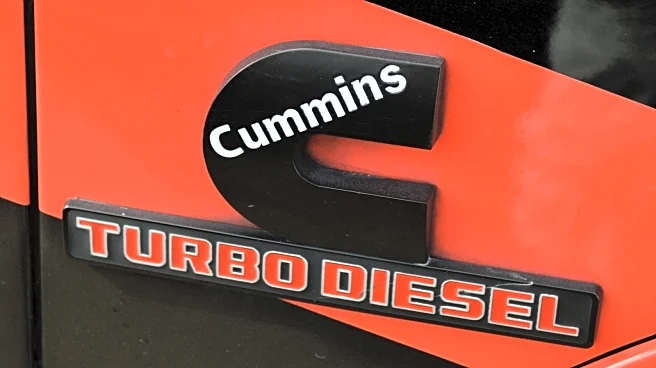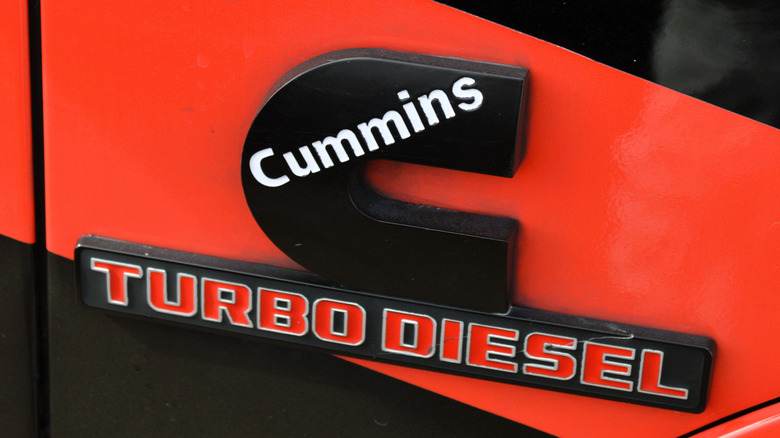
Founded by Clessie Cummins in 1919, Cummins has been making engines for over a century. Their engines are inside everything imaginable; from pickup trucks to long-haul semis, mining equipment to marine
vessels. They're also used everywhere, from the U.S. and Australia, to India, and even China. In the near future, Cummins will also be building an airplane engine. From modest beginnings with a one-cylinder engine that debuted in 1919, to the 7.2-liter behemoth that's rumored to be in the works, Cummins has come a long way since it first started out. Over the years, the company has added several safety systems, features, and technology, which has greatly improved the efficiency and longevity of these engines.
However, with more features comes more complexity, and invariably, more points of failure. Even so, Cummins engines have remained the definition of reliability; especially in the heavy-duty world — in fact, many people consider the Cummins 5.9 to be the most reliable American pickup truck engine out there. However, even industry titans like Cummins are not infallible, and occasionally stumble. And given the popularity of its engines, recalls can be absolutely titanic. Some are simple software glitches, some are life-threatening if not addressed immediately, and still others are done for shadier reasons.
Read more: Fans Say These Are The 5 Best Years For Cummins Diesel Engines
ECM Failures On 2015 IS-Series Engines – 805 Units
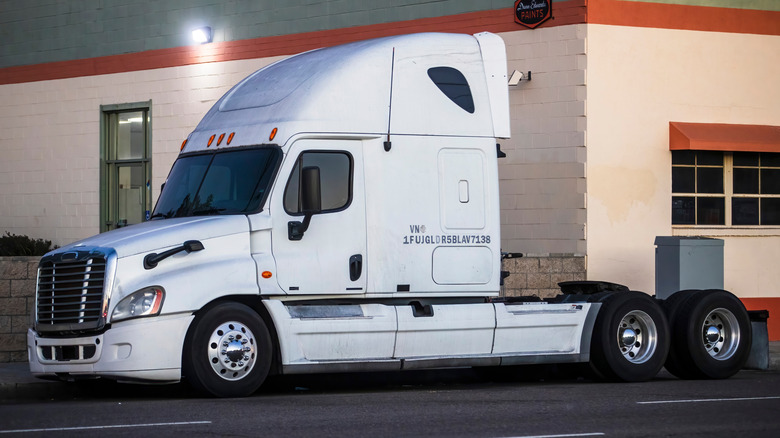
The first recall on our list is number C1698, which was issued on September 4, 2015. The base problem was that the engine control module (ECM) could potentially get shorted out due to a faulty fuse. Since the ECM is essentially the brain of the engine, this could lead to the engine stalling, and being unable to restart. For obvious reasons, engine stalls are particularly dangerous, especially when they come without warning, as would have been probable in this situation. The four engines that were affected by this recall were the ISB 6.7, ISL-9, ISX-12, and ISX-15, all of which could be found in various heavy-duty applications.
The manufacture period for the engines that were at risk was July 23, 2015 to Aug. 7, 2015 — not a terribly long time, and no doubt a factor in why only 805 vehicles were recalled. Cummins inspected the trucks, and replaced any faulty control module free of charge to remedy the error. The National Highway Traffic Safety Administration (NHTSA) campaign for this particular recall was 15E-073, which owners can use to look up information by plugging it into the relevant NHTSA portal. This portal lets users view and download several key documents related to the recall, as well as see progress updates and past actions related to it. We will be including the NHTSA campaign number for every recall on this list.
Connecting Rod Detachment On ISL CM850 Engines - 2,139 Units

Recall C0713 was filed on May 18, 2007, affected a grand total of 2,159 Cummins-powered vehicles. While most other recalls on our list concern either pickup or semi trucks, this one was for recreational vehicles, or RVs. The potential failure was related to the connecting rods in the engine. These solid metal columns attach the pistons to the crankshaft, so they're pretty critical. The joint between the piston and the connecting rod used a pin, which could seize up and cause the joint to fail. This in turn would cause the engine to lose power and fail, possibly leading to a crash in the wrong circumstances.
Specifically, units outfitted with the ISL CM850 engine produced between Oct. 17, 2005 and April 18, 2006 were subject to the recall. Affected serial numbers were between 46543077 and 46603939, both inclusive. Cummins estimated that, out of the 2,159 affected units, about 3.8% would suffer from the connecting rod issue, but the law forced it to do a 100% recall to check it out. If found to be problematic, Cummins and its service centers would carry out the repairs for free, though it expired on July 1, 2012. This recall came with NHTSA campaign number 07E033000.
DPF Fire Hazard On IS-Series Engines - 8,870 Units

Cummins recall C1154 was issued on the Sept. 16, 2011. It affected vehicles made by the Daimler Group — specifically models from the Freightliner Custom Chassis Corporation (FCCC), Freightliner trucks, and Thomas Built Trucks. The brunt of the recall was borne by FCCC, which had a total of 10 individual models; alongside two models each from Thomas Built Trucks and Freightliner. Cummins estimated that 8,870 vehicles were susceptible to the fault, manufactured between Sept. 1 and Dec. 31, 2010. Only models carrying either the ISX or ISL diesel engines were subject to recall C1154, with the main issue being that the diesel particulate filter (DPF) could fall out.
The DPF unit had a part called a T bolt, which could break, and in turn cause the frame that holds the DPF unit in place to disconnect. If not rectified, the DPF unit could fall off the truck. Without the DPF system, there's no way to properly channel the extremely hot exhaust gases out the tailpipe. As a result, blisteringly hot exhaust gases could find their way into various nooks and crannies, where they will raise the temperature and lead to fires — a pretty serious issue. Cummins and Daimler repaired affected trucks for free. This recall carried the NHTSA campaign number of 11V-474 and Daimler Trucks North America complaint number FL-611.
Fuel Barrel Failure On X15 Engines - 9,000 Units
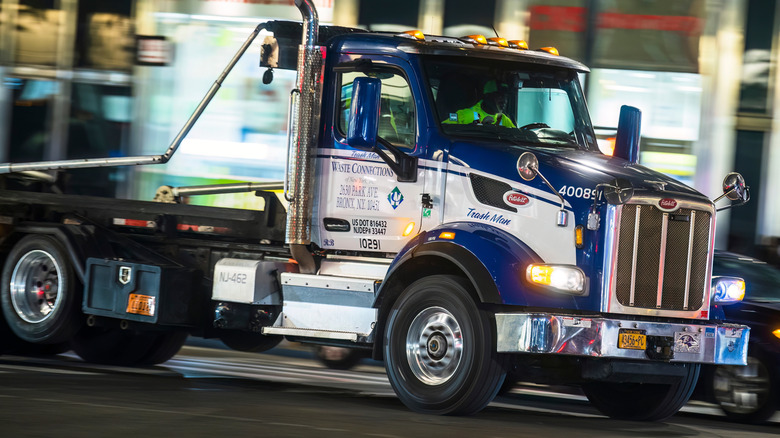
The next recall, given the code C7083 by Cummins, affected about 9,000 vehicles. Mainly affecting 6,000 assorted Kenworth and Peterbilt trucks, the recall was concerned only with trucks that had Cummins' flagship X15 engine. The main issue was related to the high-pressure fuel pump that was used on the X15. Each pump had two barrels that were not properly rated, and could fracture, leading to diesel leaks. Since fuel pumps are the only gate for diesel to get to the engine, leaks can be catastrophic. Depending on the nature and extent of the fracture, this could mean a fuel pressure warning light, or even a complete loss of power. If loss of power occurred, this meant that a lot of diesel was leaking out, and the engine would be unable to restart.
Cummins would replace the barrels with new ones for free, in a process that took two hours. Luckily, diesel has a higher flash point than gas, so fire wasn't an inherent risk, but it was possible. Here's a list of all the affected Kenworth models: W990, T680, T800, T880, W900, and C500. On Peterbilt's side, casualties were limited to the 567, 579, and 589 models. After the Kenworth-Peterbilt recall, some Daimler (freightliner) trucks were also recalled, bringing the total up to around 9,000 affected. The NHTSA number was 24V789000, the Daimler number was F1010, and the Paccar number was 24V-789.
Pressure Sensor Failure On IS-Series Engines - 25,000 Units
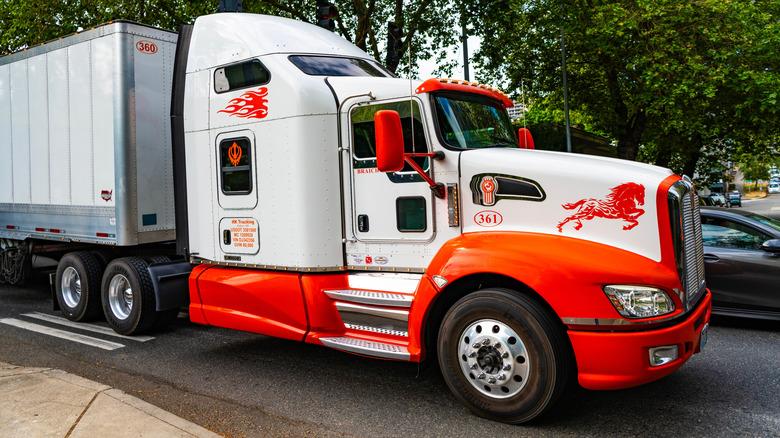
This next recall, code C1462, sent out communication on April 12, 2014, and primarily concerned the natural gas engines that Cummins made. Specifically, it affected the ISL-G and ISL12-G that were used in various heavy duty applications. The ISL-G units made between 2007 and 2014 were recalled; alongside ISL12-G units that were made from early 2013 to early 2014. Cummins-Westport recalled the ISL-G engines in April, and Autocar Trucks recalled the ISL12-G engines in August 2014. The problem was to do with an engine pressure sensor that was located inside the intake manifold. Engines that were being used in colder climates were found to have a tendency to let moisture into the intake manifold, which would then freeze.
This ice and frost buildup would make the pressure sensor give false readings. As a result of these faulty readings, the temperature of the exhaust gases would rise, sometimes even causing flames to shoot out from the exhaust — which could damage property and, more importantly, injure people. To fix the issue, owners could take their truck to the warranty center, where technicians would perform an engine control module (ECM) software recalibration completely free of charge, which would fix the pressure sensor, eliminating the problem in turn. The NHTSA campaign number for this Cummins recall was 14V-130, and the Autocar Severe Duty Trucks recall number was M-1404.
PCM Calibration Issues On The 6.7-Liter I-6 Engines - 34,000 Units
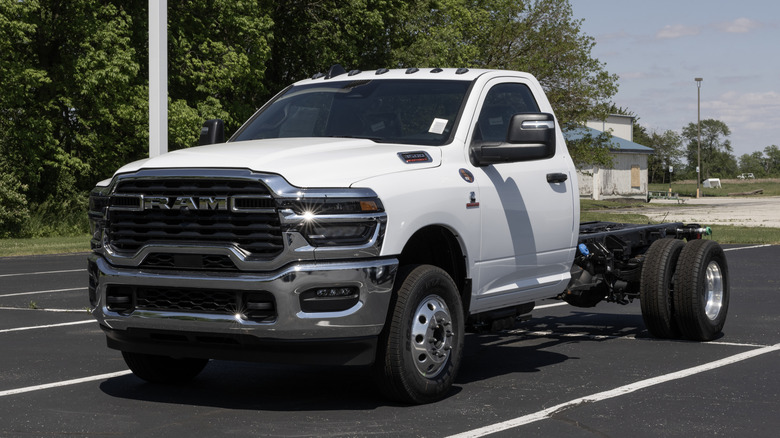
Recall number W57was for the RAM 2500 DD, 3500 DP, and 4500 DP with the 6.7-liter Cummins, made between 2019 and 2020. When engines sit idle for a couple hours, the oil tends to fall and collect to the lower parts of the housing and storage due to gravity, as when the vehicle is off, there are no pumps moving oil around the engine. Oil in the engine serves to lubricate parts that are in contact, so that they don't grind against each other. This is why it's advised to let your vehicle "warm up" for a couple minutes, as this gives the oil pumps enough time to get the lubrication to where it needs to be — otherwise, for a short while, you'd be driving without lubrication in some parts of the engine, which causes unnecessary stress.
As per this recall, the issue with some 34,000 of these RAM 2500, 3500, and 4500 trucks was that the onboard computer had a software glitch that didn't factor this warmup in properly. This could lead to the main rod bearings not getting oil, which could lead to connecting rod buckling, which could lead to oil coming in contact with the hot engine, causing a fire. That's not to mention the massive repair cost of broken rods. Cummins would fix the issue with a powertrain control module (PCM) software update for free. The NHTSA number for this recall was NHTSA 20V-511.
Intake Heater Relay Fire Risk On 6.7-Liter I-6 Engines - 138,000 Units
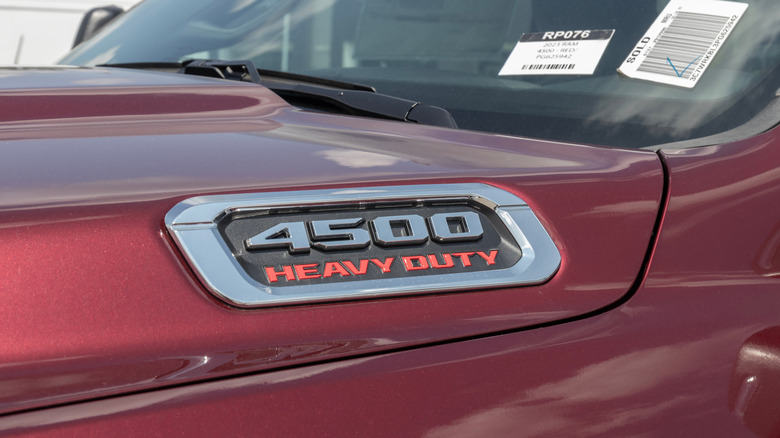
Cummins recall number Y76 was issued in October 2021, and affected Dodge RAM pickup trucks that had been optioned with the 6.7-liter Cummins engine. The four main model lines affected by this recall were the RAM 2500, 3500, and 4500 pickup trucks, as well as the RAM 3500 chassis cab units; specifically the ones produced between 2021 and 2022. The problem lay in the fact that the heater relay located in the air intake could potentially short out. In extreme cases, this would result in a compartment fire in the engine, which is certainly cause for concern.
The worrying part of this issue was that the fire could start whether the ignition switch was on or off, making it all the more dangerous and urgent to rectify. No less than 137,946 RAM trucks were susceptible to this vulnerability. To fix the problem, Cummins would inspect the affected vehicle, and first check if the total engine hours exceeded 600. If less than 600 engine hours had been logged, then the tech would run the engine and monitor it with a thermometer. If, during this test, the intake manifold registered 176 degrees Fahrenheit (80 degrees Celsius) or more, the grid heater would be replaced. Additionally, RAM trucks that had already gone through with the Y08 recall were considered safe from the issue. The NHTSA campaign reference number for this recall was 21V-798.
Fuel Pump Stalling On 6.7-Liter I-6 Engines - 222,400 Units
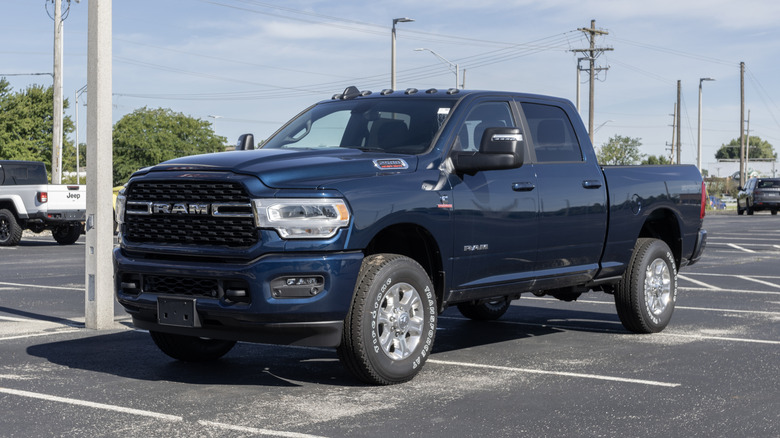
Cummins recall Y78 was finalized in June 2022. The issue was that, since it was introduced in 2019, RAM owners had complained about the Bosch CP4 fuel pump that was being used on the RAM trucks that shipped with the 6.7-liter engine. Then, in 2021, the CP4 was found — after an NHTSA probe — to be prone to premature stalling. Of course, with no fuel being pumped into the engine, the affected vehicle would also stall, and subsequently be unable to start. Additional risks posed by this particular fuel pump issue were that debris from the pump could find its way into the engine and cause damage to components, and cause fuel leakage as well. For recalled units that were not found to have a failed fuel pump, only the pump unit would be replaced.
For vehicles that were confirmed to have had a fuel pump failure, both the fuel pump unit as well as the entire fuel tank assembly would be replaced. Both procedures would be done free of cost to the owner of the truck. Cummins also instructed the dealers to issue loaner vehicles to customers if it was deemed necessary to conduct the part replacement, as the original affected car would be out of commission for a while. In total, 222,400 vehicles were recalled. The NHTSA campaign number for Cummins recall Y78 was 21V-880.
Fuel Heater Fire Risk On 6.7-Liter I-6 Engines - 314,000 Units
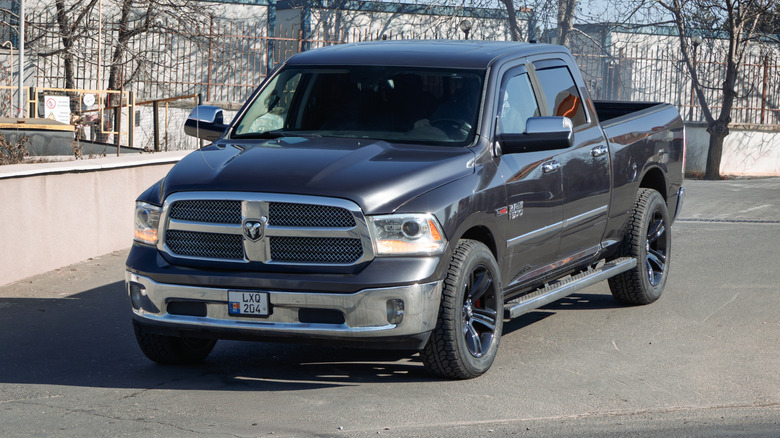
P65 was the Cummins recall code for this next callback. It affected several RAM vehicles made between 2009 and 2013, namely the RAM 5500, 4500, 3500, and 2500 pickup truck variants. The source of concern on these vehicles was a problematic fuel heater. The electrical connection points located within the fuel heater unit could see a sharp spike in temperature, making the rubber gaskets in the unit fail; which could potentially cause the heater unit to leak fuel. With fuel going places that it shouldn't be, the risk of a fire breaking out at various places would dramatically increase, which would be quite dangerous. The total number of vehicles that were called back under recall P65 was close to 314,000, which is a staggering number.
To remedy the hazard, the connector housing at the end of the fuel heater's wiring sheath would be inspected and replaced, free of charge. Additionally, we'd like readers to note that though there are a lot of recalls affecting the RAM pickup trucks with the Cummins 6.7-liter engine; given the duration that this engine has been in production, the track record is actually pretty good. In fact, it's surprising that more engine-related recalls haven't come about. The NHTSA campaign code for this recall was 14V-635.
Water Pump Fire Risk On 6.7-Liter I-6 Engines - 500,000 Units
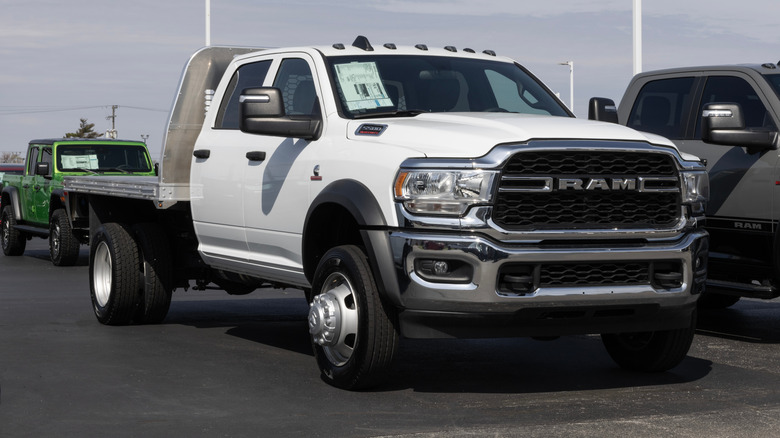
The 2017 Cummins recall with the code T51 was rather unique, in the sense that it related to a water pump causing a fire. It affected more than half a million vehicles in total, out of which about 444,000 were U.S. makes, 46,000 were Canadian, and about 4,500 were from other countries. Affected model lines were the RAM 2500 and 3500 pickups, but also the 3500, 4500, and 5500 chassis cab variants. All problematic models were manufactured between 2013 and 2017, with the exception of the RAM 3500 10,000-pound chassis cab, which was made between 2016 and 2017.
The main issue that this recall aimed to address was that one particular part inside the water pump on the 6.7-liter engine could be exposed to extreme temperature, greatly increasing the risk of combustion and an under-hood fire. All vehicles were entitled to a free inspection and free replacement of the water pump and all associated O-ring gaskets. The NHTSA recall number for this campaign was 17V-562.
SCR Catalyst Degradation On 60+ Different Engine Families - 770,000 Units
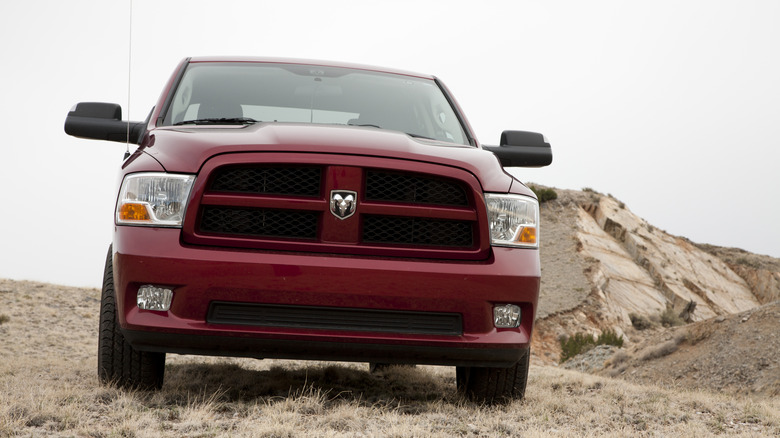
The 2018 Cummins recall for after-treatment systems was another massive one, affecting about 770,000 vehicles in total. The relevant models were the Dodge RAM 2500, 3500, 4500, 5500, alongside several IS-series trucks and buses, produced between 2010 and 2015. The problem here was that a key emission control system, called the selective catalytic reduction (SCR) system could fail. The catalyst in the SCR module was degrading and losing its useful life a lot quicker than Cummins and RAM had predicted, meaning that the vital emissions-control unit was missing out on the emission-control bit.
Thus, Cummins would issue a recall after consulting with the California Air Resources Board (CARB). As a result of this campaign, owners could get the degraded catalyst replaced, or get reimbursed if they'd already paid to get it done. As a result of the sheer scale, this recall was the largest voluntary callback for heavy-duty trucks, related to emissions standards. Given that the recall was voluntary, no NHTSA number was be issued, as emissions recalls are not considered a safety risk, and are thus handled by the EPA, and not the NHTSA — with the exception of the final entry on our list.
Emissions Defeat Software On 6.7-Liter I-6 Engines - 960,000 Units

Lastly, we have the very well-known Cummins recall 67A, which was related to emissions-control defeat. The issue here was plain and simple: Cummins had programmed software on its engines to falsify emissions data. It mainly affected RAM 2500 and RAM 3500 models equipped with the 6.7-liter inline-six engine from Cummins, produced between 2013 and 2019. However, that wasn't all: In addition to the 630,000-or-so RAM pickups, about 330,000 other models from 2019 to 2023 also had some form of emissions defeat system, bringing the grand total up to 960,000 affected vehicles.
The recall was mandated after an investigation by the EPA and CARB discovered the emissions-regulations non-compliance, and Cummins was also forced to pay a $1.675 billion settlement. This was the second-largest environmental fine of all time, behind only the $20.8 billion Deepwater Horizon oil spill, and was also the largest amount ever awarded under the Clean Air act. Additionally, owners who got all procedures associated with recall 67A were also given a goodie-bag, branded with "6.7 forever" merchandise, probably because Cummins was getting desperate; as a key term of the settlement was that if 85% of the 960,000 vehicles were not remedied in 36 months, more fines were to follow.
Want the latest in tech and auto trends? Subscribe to our free newsletter for the latest headlines, expert guides, and how-to tips, one email at a time.
Read the original article on SlashGear.
